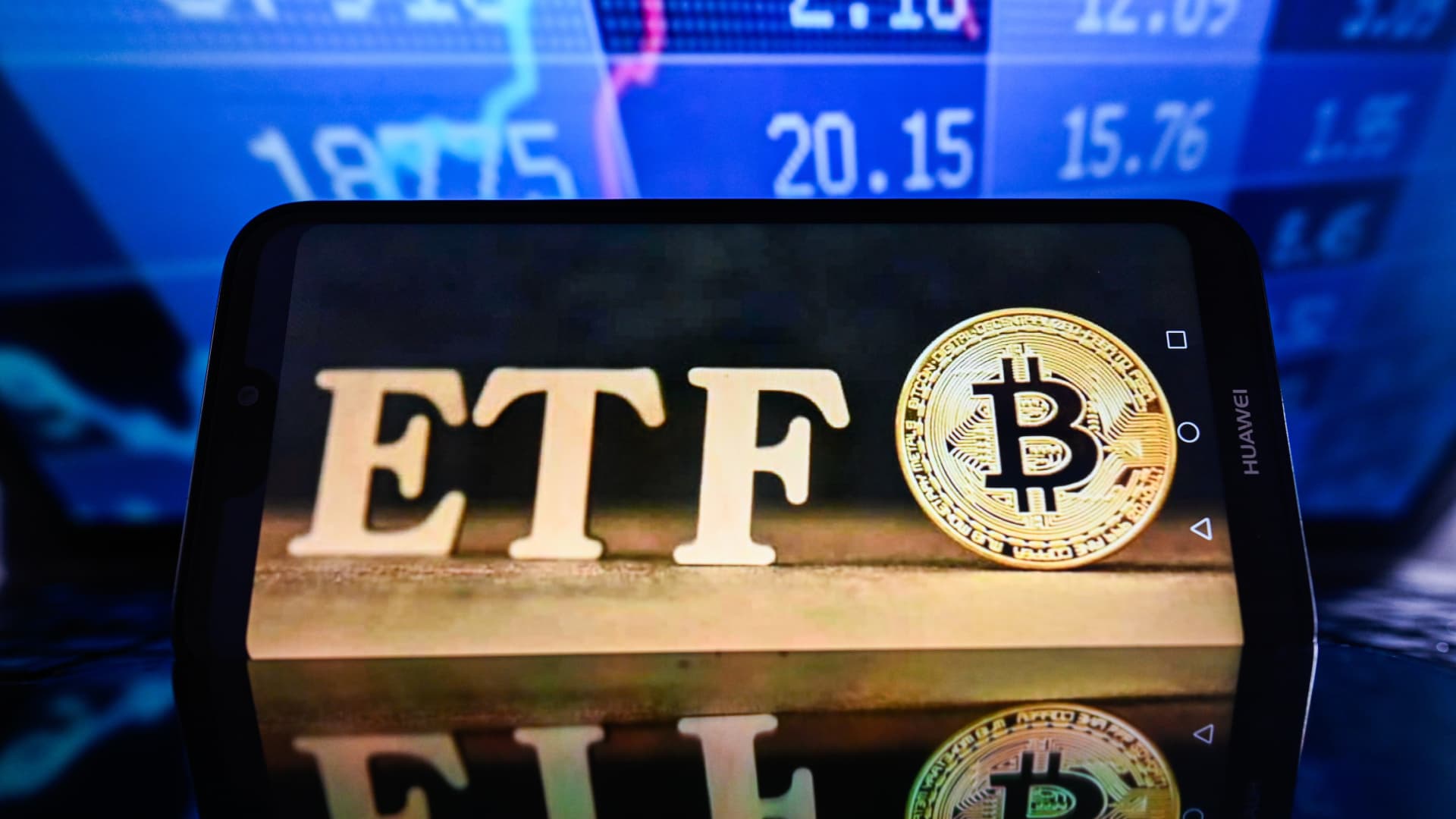Omar Marques | Lightrocket | Getty Images
The Securities and Exchange Commission said Tuesday afternoon that an announcement about bitcoin ETFs on social media was incorrect.
“The SEC’s @SECGov X/Twitter account has been compromised. The unauthorized tweet regarding bitcoin ETFs was not made by the SEC or its staff,” an SEC spokesperson told CNBC.
The false social media post said that the SEC had approved bitcoin ETFs for trading. The price of bitcoin briefly spiked after the initial post, but then quickly slid below $46,000.
The SEC is expected to make a decision on bitcoin ETFs this week after opposing them for years. More than a dozen asset managers have filed applications to create such a fund, including many that filed updated registration statements on Tuesday morning.
The price of the largest cryptocurrency has been climbing in recent months, in part because of growing optimism that the so-called spot bitcoin ETFs would be approved. Funds that track the price of bitcoin futures already trade on exchanges in the United States.
Crypto advocates contend that the launch of the spot bitcoin funds could bring a new type of investor into digital assets. ETFs are an instrument that financial advisors use regularly. The idea is that advisors and investors who have been spooked by the intricacies around custody of bitcoin would be more willing and able to buy crypto in an ETF wrapper.
SEC Chair Gary Gensler has been a vocal opponent of crypto during his tenure, and the commission has brought legal action against several major crypto exchanges. Gensler had used social media earlier in the week to urge investors to use caution when buying products tied to crypto.
Last year, the SEC lost a court case against crypto asset manager Grayscale, which wants to convert an over-the-counter trust holding bitcoin into an ETF. The SEC declined to appeal that ruling, fueling speculation that the regulator would soon approve bitcoin ETFs.
Correction: A previous version of this story said that the SEC had approved bitcoin ETFs for trading. The story has been updated to reflect that a false social media post was made.
This story originally appeared on CNBC

